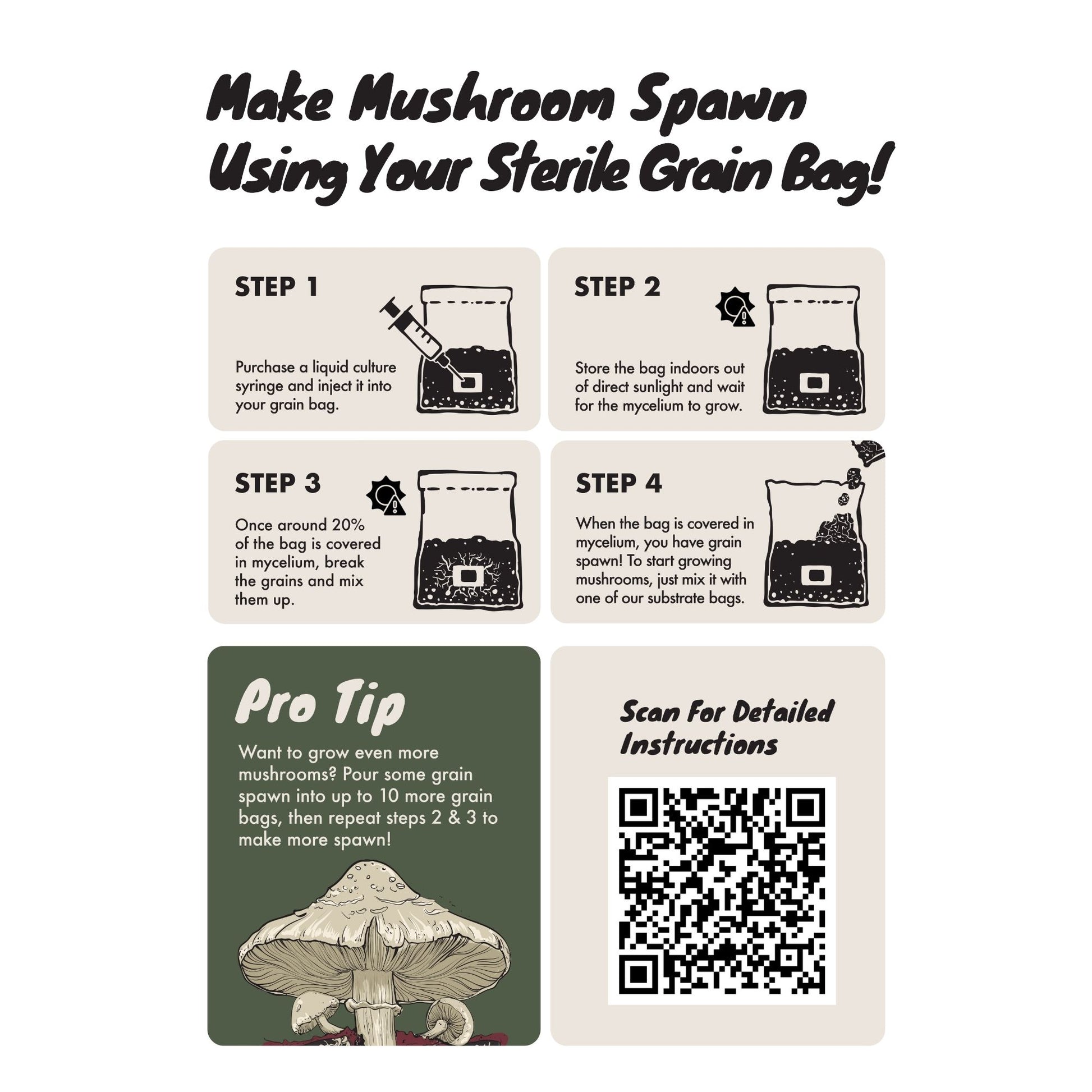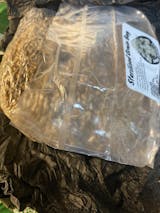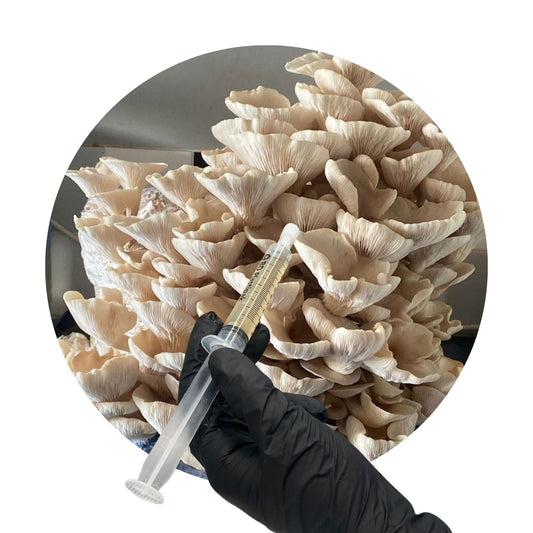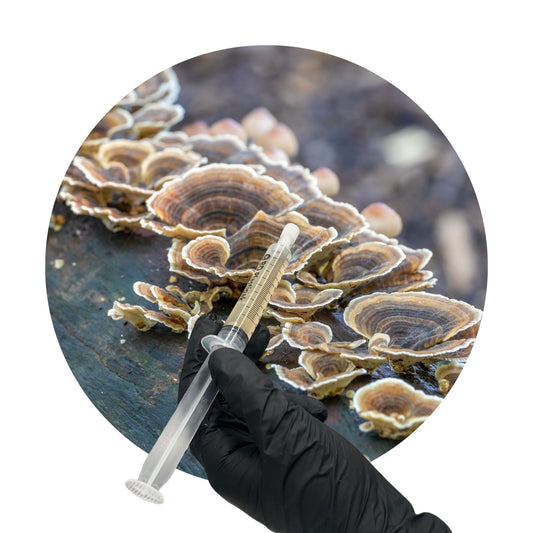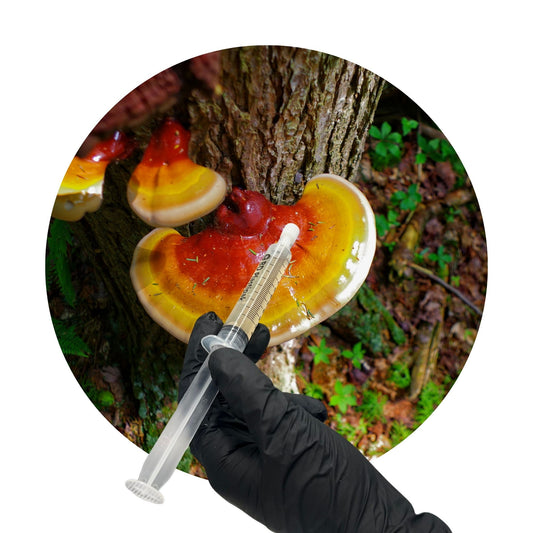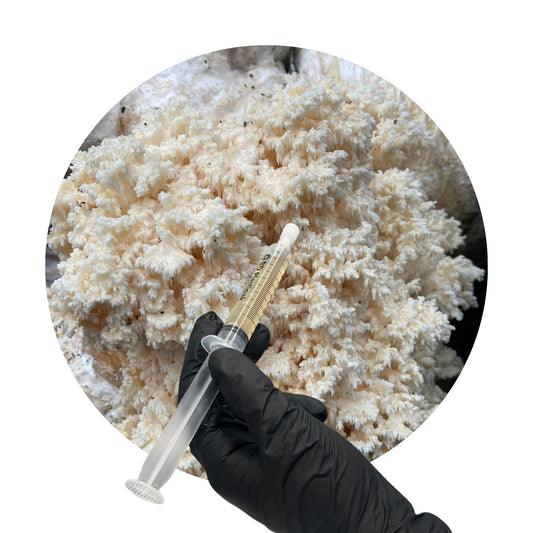Spore Supplies
Sterile Rye Grain Bag for DIY Mushroom Spawn
Sterile Rye Grain Bag for DIY Mushroom Spawn
In stock
Couldn't load pickup availability
This Sterilised Rye Grain bag allows you to start growing healthy mycelium for fresh mushroom production. Our rye grain is soaked for 24 hours, simmered, then drained and laid out on a mesh screen to dry the outside of the grain, whilst leaving enough moisture on the inside to support mycelial growth. Plus, each sterile grain bag features a handy injection port for shooting your spores or liquid culture into.
Every grain bag we make is sterilised in our medical-grade autoclave for 2 hours and 30 minutes, with a pressure of at least 15 PSI. This gives our blocks enough time at a minimum of 121ºC to reach the centre of the bag, ensuring all micro-organisms are killed off. We then heat seal the grain bag in front of a laminar flow hood to stop any contaminants from getting in.
Features
Features
- Sterile Rye Grain
- T Filter Injection-Port Unicorn Bag
- For Spore to Spawn Growth
- Autoclaved For 2 Hours 30 Minutes
- Sealed In Cleanroom
- Batch Tracking
- 'How To' Guide Included
What's Included
What's Included
- Sterilised Rye Grain In A T Filter Unicorn Bag With Injection-Port
- 70% Isopropyl Alcohol Wipe
Not Included
Not Included
- Genetics
- Aseptic Technique Kit
How To Use
How To Use
To start growing mycelium with this rye bag: Using aseptic technique, wipe the injection port with the included 70% isopropyl wipe, then attach the needle to your chosen liquid culture/spore syringe and sterilise the tip of the needle (at your own risk). From there, insert your syringe into the injection port and inject around 10cc of liquid (depending on spores/culture). For more details check out our How to use your Sterilised Grain guide.
Storage Instructions
Storage Instructions
All sterile bags should be removed from any delivery packaging immediately after being received. This allows the filter patch to breathe, which prevents moisture from passing through the filter and drawing contaminants into the bag.
We recommend storing the bags upright, in a cool, dark place like a cupboard, for up to 7 days to observe that the bag is sterile before use. Do not store in the fridge. All bags can be stored for up to 6 weeks, but should be used as soon as possible. Our sterile bags are covered by our sterile guarantee, so in the unlikely event that your unused bag contaminates within 30 days of receiving it, please contact us for a replacement.
Deliveries & Returns
Deliveries & Returns
Delivery:
We aim to dispatch all in-stock orders placed before 3pm Monday-Friday the same day.
If using our weekend delivery service, we will aim to dispatch your order before 10am Saturday-Sunday.
We ship all orders using the DPD Next Day service, so in most cases, you can expect to receive it the next day (if ordered before the cutoff).
For more info on dispatch times, services and delivery costs, check out our delivery page.
Returns:
Although unlikely, If for any reason your order arrives damaged, contaminated or not as expected, just contact us and we'll make it right.
Please note, we cannot accept liability for any used/opened sterile items, check out our returns policy for more info.
- Chat Support
- Fast Delivery
- Easy Returns
Share


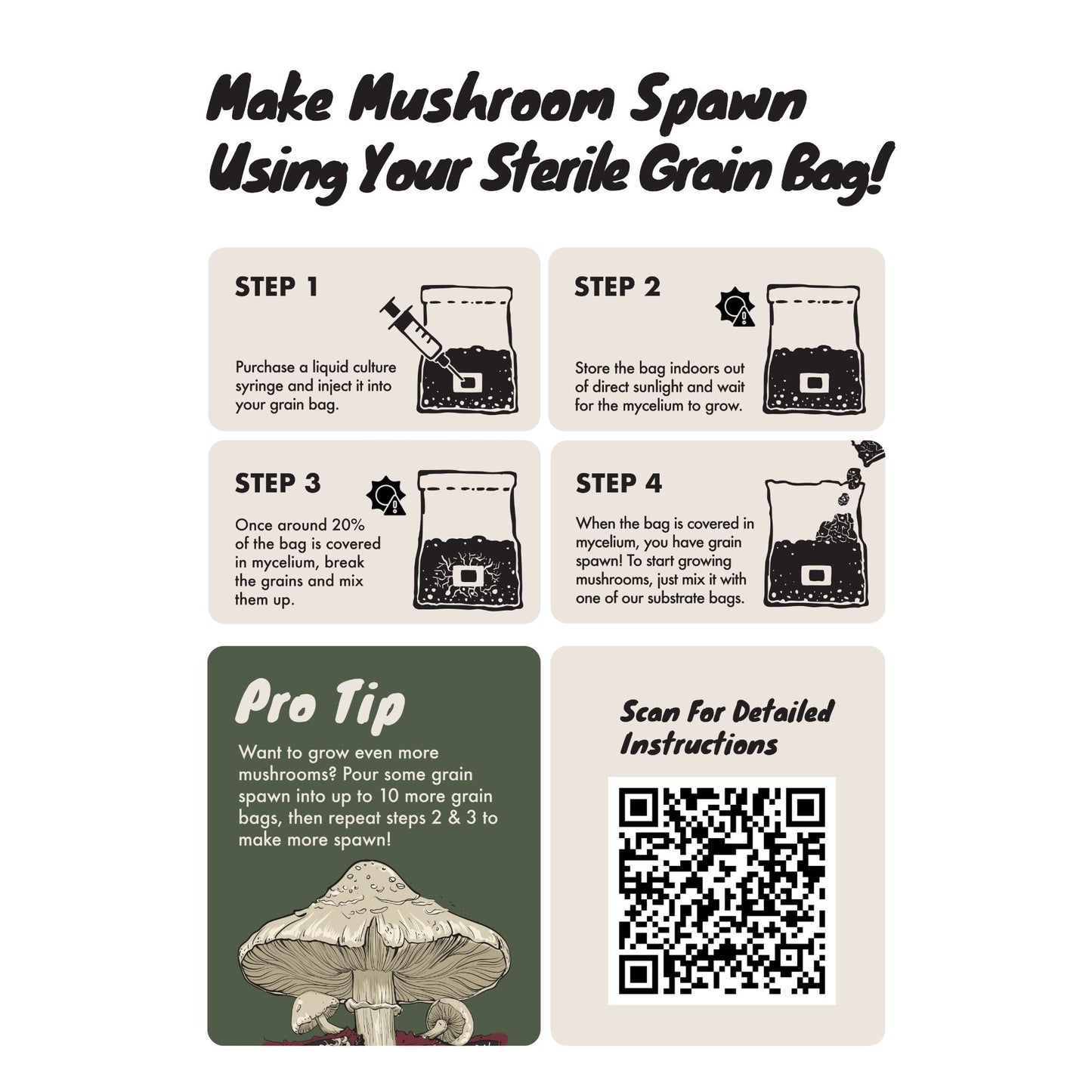


Using Your Sterile Grain Bags
Full Instructions-

Inject Grain Bag
-
Incubate Your Grain
-
Let Mycelium Grow
-
Add To Substrate
how Our Sterile Grain Bags Are Made:
-

Perfectly Hydrated
All of our grain recipes are hydrated using soaking or simmering methods, before being surface dried & placed into premium Unicorn filter patch bags.
-

Steam Sterilised
Once bagged and folded, our grain bags are sterilised inside our medical grade autoclave using high temperature steam to kill off all contaminants.
-
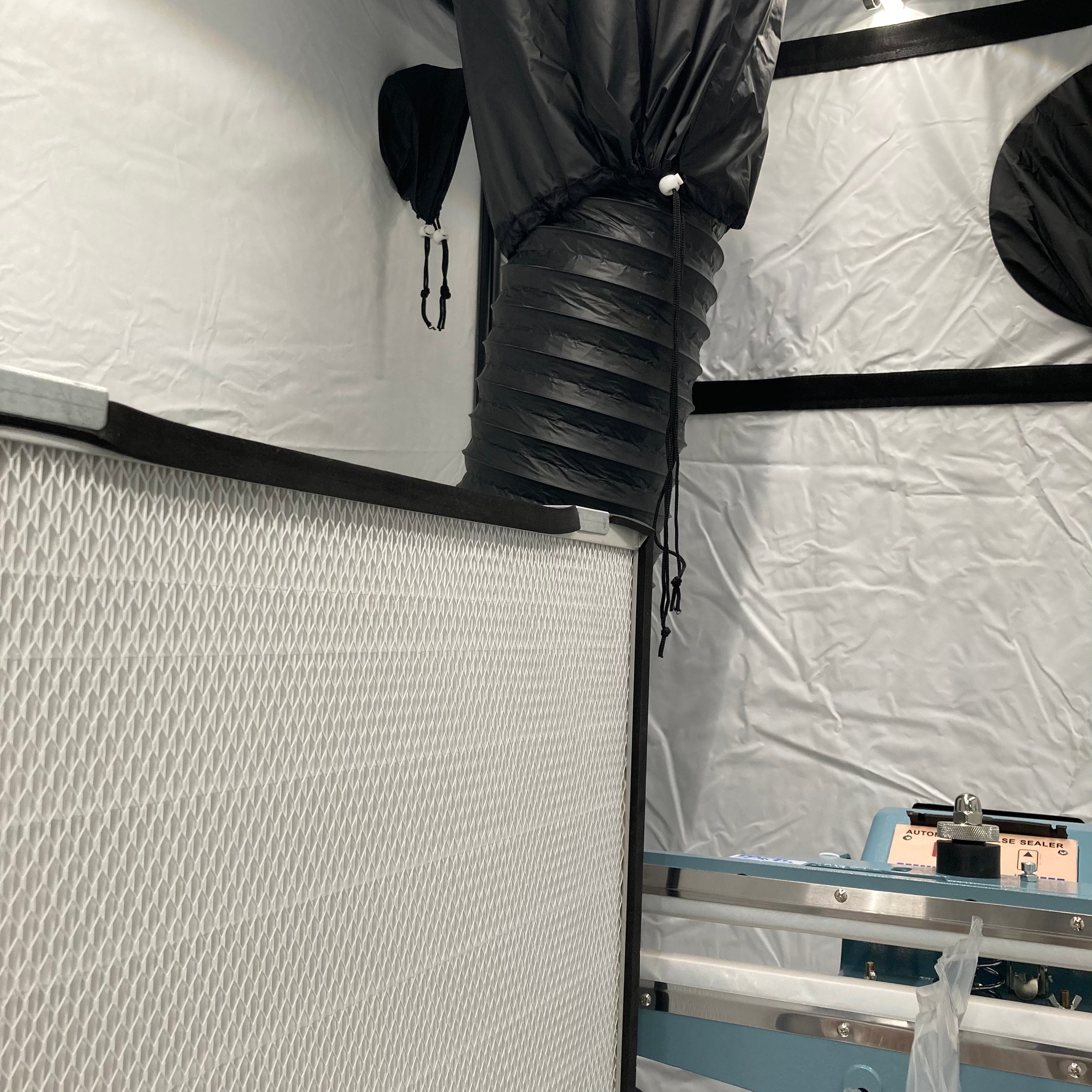
Cleanroom Sealed
After sterilisation, the grain bags are placed into our cleanroom to cool down before being sealed shut with our impulse heat sealer.
-
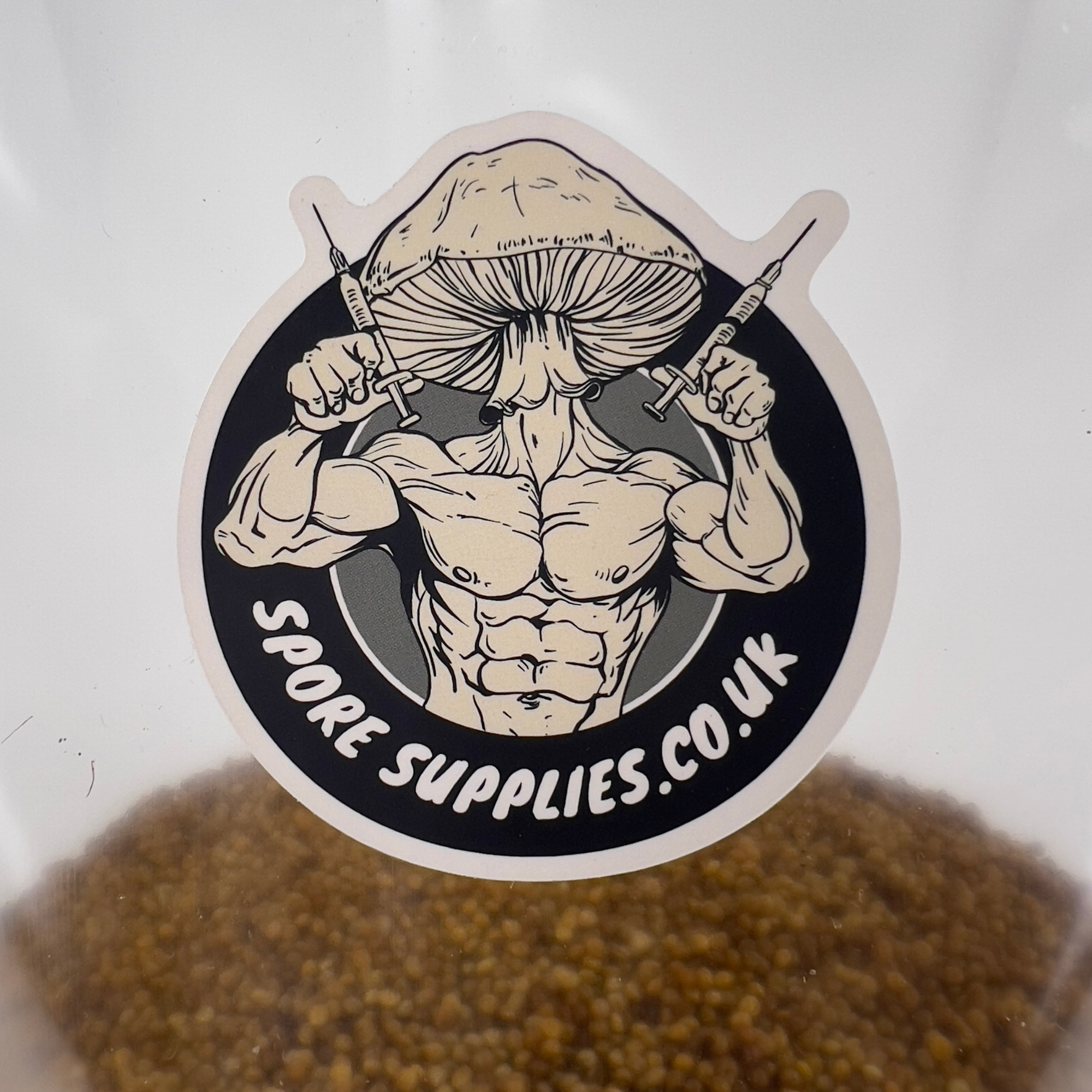
Quality Monitored
When a sterile grain bag leaves the cleanroom, its quality is monitored to ensure sterility, ready for safe inoculation with genetics.
Excellent customer service, easy to deal with. Very helpful Look forward to next purchase
Thank you, Maythem!
Bags came all sealed in good packing with sterile wipes. oculation seems to be going well so far. Can’t fault the product
Glad to hear that your rye grain bag is going well! Thanks for the feedback :) - Spore Supplies Team
Liquid Cultures
-
Branched Oyster (Pleurotus cornocopiae) – 10ml UK Native Liquid Culture
Regular price £9.99 GBPRegular priceUnit price / per -
Turkey Tail (Trametes versicolor) – 10ml UK Native Liquid Culture
Regular price £9.99 GBPRegular priceUnit price / per -
Reishi (Ganoderma lucidum) – 10ml UK Native Liquid Culture
Regular price £9.99 GBPRegular priceUnit price / per -
Coral Tooth (Hericium coralloides) – 10ml UK Native Liquid Culture
Regular price £9.99 GBPRegular priceUnit price / per
Guides:
View all-

Magic Mushroom Laws in the UK (2026): What’s Le...
Learn about UK magic mushroom laws, psilocyb*n classification, and the legal status of spores, grow kits, and mycology supplies in 2025.
Magic Mushroom Laws in the UK (2026): What’s Le...
Learn about UK magic mushroom laws, psilocyb*n classification, and the legal status of spores, grow kits, and mycology supplies in 2025.
-

How To Use Your Liquid Culture Jar: The LC Inoc...
Here's a full list of instructions for using your sterile jar kit! Follow these steps and you'll be growing liquid mycelium in no time.
How To Use Your Liquid Culture Jar: The LC Inoc...
Here's a full list of instructions for using your sterile jar kit! Follow these steps and you'll be growing liquid mycelium in no time.
-

Liquid Cultures VS Spore Solutions – Which Is B...
Should you use liquid cultures or spore syringes? In this guide, we'll take a look at the best uses for each to have you growing mushrooms like a pro!
Liquid Cultures VS Spore Solutions – Which Is B...
Should you use liquid cultures or spore syringes? In this guide, we'll take a look at the best uses for each to have you growing mushrooms like a pro!


